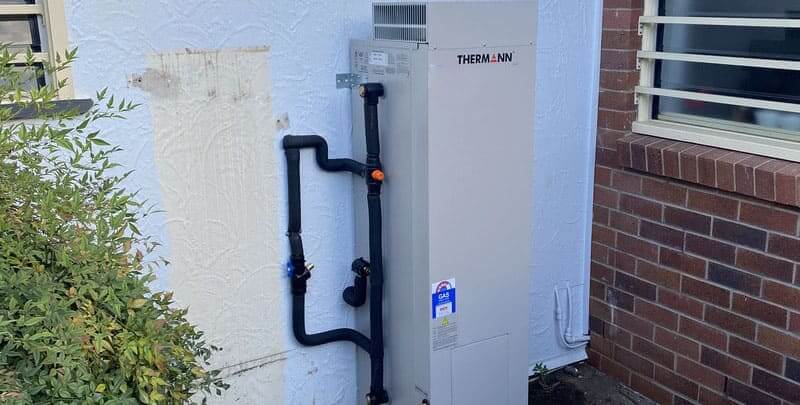
How Long Does a Hot Water System Last?
You've just woken up on a cold winter morning. Half asleep, you find your way to the bathroom, eagerly anticipating the hot shower to shake off the cold and jumpstart your day. You turn on the tap, expecting a comforting stream of hot water.
However, you’re rudely greeted by a rush of icy cold water. What a nightmare, right? The likely culprit here is your ageing hot water system.
On average, a hot water service lasts between 8 to 12 years. However, a range of factors can actually determine its overall lifespan.
Understanding the longevity of your hot water heater can help you avoid such unwelcome surprises and allow for timely upgrades or replacements. We’ll even look at practical ways that might help you prolong its shelf life.
So, How Long Do Electric, Gas, Heat Pump and Solar Hot Water Systems Last?
Here in Australia, there are four different heating method options for your hot water system. Each option boasts unique features that play a large role in determining the lifespan of your water heater.
- Electric-powered: Favoured for being easy to install and use, an electric hot water system generally lasts between 10 to 15 years.
- Gas powered: Though it boasts low running costs and greater efficiency than an electric water heater, a natural gas hot water system typically comes with a shorter 8 to 12-year lifespan.
- Heat pumps: These innovative units capture heat from the air or ground to heat water. Heat pumps offer superior energy efficiency and a typical lifespan of around 15 years.
- Solar powered: The gold standard for longevity, a well-maintained solar hot water system can serve the household for an impressive 15 to 20 years. It also reduces your reliance on grid electricity and produces fewer greenhouse gas emissions.
When the time comes that your hot water heater is beyond simple repair and ultimately needs replacing, you’ll need a licensed plumber to manage the replacement process for you.
Types of Hot Water Systems
Once you’ve determined what will power your new hot water system, you’ll need to determine the type you want for your home.
- Storage water heaters: These heat and store water in a tank for later use. With diligent storage tank maintenance, electric and gas storage systems can serve you well for about 12 to 15 years.
- Instantaneous water heaters: also known as continuous flow systems, they provide heated water only when you need it. Due to less mechanical stress, gas and electric instantaneous water heaters can often last up to 20 years with appropriate care.
Remember, these are averages, and individual system lifespans can vary based on maintenance and other factors.

Quality of Installation
The lifespan of your hot water service can be significantly influenced by the quality of its installation. It’s not simply about connecting a few pipes; professional and correct installation ensures your system operates at peak efficiency and lasts as long as possible.
A poorly installed system can lead to a host of problems, including energy inefficiencies, unnecessary strain on the unit, frequent breakdowns, and even safety risks. This, in turn, can drastically reduce the lifespan of the unit.
Hence, hiring a professional and reputable service provider for the installation is crucial. Investing in quality installation now can save you money and potential headaches down the line.
Regular Maintenance
Your hot water service needs regular maintenance to function effectively over a long period. A well-maintained system can even outlast its estimated lifespan. Some routine maintenance tasks include:
- Checking and replacing the anode rod
- Flushing the system to remove sediment build-up
- Checking for leaks and other signs of damage
Maintenance needs can vary depending on the type of hot water heater you have, and the quality of your local water supply.
Water Quality
The quality of your local water supply plays a significant role in the lifespan of your hot water service. If you have hard water, which is water with high mineral content, your system may experience a build-up of sediment in the tank over time. This sediment can reduce the efficiency of your system, leading to more strain on the components and, consequently, a shorter lifespan.
Hard water can also cause scaling on heating elements, further diminishing system efficiency and potentially leading to premature failure. Therefore, understanding your local water quality and taking steps to mitigate its potential impacts can significantly extend the lifespan of your hot water unit.
Extending the Lifespan of Your Hot Water System
So, you may be wondering, “How can I extend the lifespan of my hot water system?” Whether you prefer heat pump systems, storage units or gas continuous flow water systems, here are a few actionable tips to help yours last longer:
- Invest in regular maintenance: As mentioned earlier, routine maintenance goes a long way in extending the life of your system.
- Install a water softener: If you live in an area with hard water, installing a water softener can prevent sediment build-up and improve the lifespan of your system.
- Insulate your hot water tank: An insulation blanket can reduce heat loss, increase efficiency and prolong the life of your system.
Ultimately, understanding the factors that affect the lifespan of your hot water heater can help ensure a more efficient and reliable hot water supply.

Get the Most From Your System
Understanding the factors that affect the lifespan of your hot water heater can help you optimise its performance and longevity.
It’s worth remembering that the lifespans of each system can vary based on the type of system, quality of installation, regular maintenance, and local water quality.
When your system eventually reaches the end of its natural life, see it as an opportunity to upgrade to a more efficient hot water system for your specific needs.
It doesn’t matter whether you’re looking to reduce greenhouse gas emissions or household energy bills, or you just want better control over how much hot water you use.
It doesn’t matter if you’re looking at electric hot water systems, a gas or solar-powered option, or even heat pump water heaters. It doesn’t even matter if you have a preference for a continuous flow system or a storage tank unit.
A dependable hot water service isn’t just about comfort – it’s a key element of a sustainable, efficient home, offering you peace of mind for years to come.
Please note: This information is provided for advice purposes only. Regulations differ from state to state, so please consult your local authorities or an industry professional before proceeding with any work. See our Terms & Conditions here.